Philosophy of Education Past Question
Philosophy for Education Past Question From 2012 to Date
Over the years most people at university are finding it to pass their exams, one of the difficult Subject is Philosophy i Education.
Here Are over 200 Past Question Which have been repeating it self from time to time
ALL PHILOSOPHY PAST QUESTION AND ANSWERS✅✅✅✅
Summary of Philosophy Of Education
LATEST PHILOSOPHY PAST QUESTIONS WITH ANSWERS
New Philosophy of Education Past Question 2021
ANSWERS TO PHILOSPHY PAST QUESTION 2021
Philosophy of Education Section B Past Question 2022
SUMMARY OF PHILOSOPHY OF EDUCATION 2022
Philosophy of Education Past Question
JOIN ALL LEVEL 100 LEARNING PAGE
Take your time and go through well
LET’S JOIN ALL UNIVERSITY STUDENTS SESSION- Which of the following is not one of the he fundamental questions of philosophy?
- What is man?
b. Who made man?
c. What is the difference between an educated and uneducated man?
d. Does man have a soul? - Who can philosophise?
a. Only educated people
b. Only professors of philosophy
c. Only students and professors of philosophy
d. Any body at all - The following statements about philosophy are true except.
a. Philosophy can be used to locate issues in dispute and help to clarity them
b. Philosophy can be usefully employed in the quest for wisdom
c. Philosophy helps us to understand the nature and history of our civilization
d. Philosophy is against religious beliefs - Metaphysical explanation of events focuses on
a. Scientific issues
b. Spiritual issues
c. Factual issues
d. Educational issues - Epistemology is a theory of
a. Creation
b. Knowledge
c Political issues
d. The nature of man - In philosophy deal with
a. Good and bad
b. Sources of knowledge
c Political debate
d. Creation - The three basic theories of ethics exclude one of the following.
a. Intuitive theory
b. Naturalistic theory
c. Development theory
d. Emotive theory
- Which of the following statements is true about curriculum?
a. Curriculum does not include tests and examinations
b. Curriculum is not expected to change
c. Curriculum is what happens only in the classroom
d. Curriculum is designed in terms of the philosophy of the society - The traditional definition of teaching as imparting information, knowledge and skills portrays the learner as……
a. Active agent in the learning situation
b. Passive recipient of knowledge
c. Co-agent in the teaching/learning situations
d. Creator of knowledge in the teaching/learning situations - The teacher’s role as imparting knowledge promotes
a. Active learning
b. Rote learning
c. Creative learning
d. Child-centered learning - What teaching technique will a teacher with the traditional view of teaching employ in teaching / learning process?
a. The lecture method
b. The project method
c. Socratic method
d. Activity method - Which of the following is not one of the philosophical under-pinning’s of the tradition of teaching?
a. The pupil is a receptacle
b. The teacher is the possessor of knowledge
c. The teacher has knowledge about what doses of knowledge the child
d. The child is an active agent in knowledge creation needs - All the following are characteristics of modern conception of teaching except…
a. The teacher is a facilitator
b. Children learn in groups
c. The teacher assists children to learn for themselves
d. The teacher is the most important person in the teaching/learning situation - Parents have freedom in education. This includes all except
a. Freedom to choose a school, for their children
b. Freedom to withdraw children from school
c. Freedom to contribute towards the development of a school
d. Freedom to abuse teachers of their wards - Which of the following is not one of the freedoms of a teacher?
a. Freedom to select teaching methods
b. Freedom to express his/her views on school curriculum
c. Freedom to come to school or not
d. Freedom from the burden of large classes - The school child/pupil has the freedom to
a. Decide which teacher should teach him/her
b. Participate in the school life
c. Remove the head of the school
d. Incite other pupils to misbehave
ALL PHILOSOPHY PAST QUESTION AND ANSWERS✅✅✅✅
Summary of Philosophy Of Education
LATEST PHILOSOPHY PAST QUESTIONS WITH ANSWERS
New Philosophy of Education Past Question 2021
ANSWERS TO PHILOSPHY PAST QUESTION 2021
Philosophy of Education Section B Past Question 2022
SUMMARY OF PHILOSOPHY OF EDUCATION 2022
Philosophy of Education Past Question
JOIN ALL LEVEL 100 LEARNING PAGE
- Affirmation of life means
a. Life after death
b. Resurrection from death
c. African Traditional Religion
d. Punishment after death - Which of the following is not one of the attributes of God?
a. God is human
b. God is good
c. God is a comforter
d. God is a giver of life - Which of the following statements is true of the African Society?
a. The Whites introduced us to the concepts of God
b. Africans introduced the Whites to the concepts of God
c. Before the coming of the Whites, we know the existence of God
d. Only the educated African understands the concept of God - The presidential committee on Education (2002) has established the… in Ghana
a.The purpose of education
b. The aims of education
c. The value of education
d. The rights of education
- Whatever the society hopes to achieve at the tail end if education is the
a. Ultimate aim of education
b. Immediate aim of education
c. Proximate aim of education
d. Tail aim of education - If the teacher states By the end of the lesson pupils should be able to read the fi paragraph of a sentence fluently. This is an example of
a. Tail aim of education
b. Immediate aim of education
c. Proximate aim of education
d. Ultimate aim of education - If Ghana in the Presidential committee says “By the end of the end of the Prima course, pupils should haven been equipped with skills of numeracy. This is an
a. Immediate aim
b. Proximate aim
c. Ultimate aim
d. Tail aim - By the end of this course will be able to explain the causes of Yaa Asantewaa War. This is an example of
a. Immediate aim
b. Ultimate aim
c. Proximate aim
d. Tail aim - Every complete scheme of education must comprise certain courses and activities to achieve the educational aims. These courses and activities constitute the school system.
a. Contents
b. Subjects
c. Aims
d. Curriculum - Curriculum is designed in terms of the philosophy of the society.
a. True
b. False - Imparting information, knowledge or skill to pupils is…..
of teaching
a. Traditional definition
b. Modem definition
c. Public definition
d. Private definition - In what sense is the teacher described as a dispenser of information, the knowledge.
a. Private sense
b. Public dense
c. Modern sense
d. Traditional sense - Which of these is not a problem with traditional view of teaching?
a. The pupil looks attentive and receptive
b The pupil’s mind may be wandering
c. The pupil may be simple copying the works of the teacher or of a book
d. The pupil may ask questions
ALL PHILOSOPHY PAST QUESTION AND ANSWERS✅✅✅✅
Summary of Philosophy Of Education
LATEST PHILOSOPHY PAST QUESTIONS WITH ANSWERS
New Philosophy of Education Past Question 2021
ANSWERS TO PHILOSPHY PAST QUESTION 2021
Philosophy of Education Section B Past Question 2022
SUMMARY OF PHILOSOPHY OF EDUCATION 2022
Philosophy of Education Past Question
JOIN ALL LEVEL 100 LEARNING PAGE
- The root of the term ‘education’ is derived from the Latin word:
a. Educand
b. Edupure
c. Educare
d. Edumere - Which of the following forms of education will you advocate for a traditional birth attendant who wants to update her knowledge and skills?
a. Informal education
b. Formal education
c. Non-formal education
d. Formal education.
e. None of these - From the Greek origin of word Philosophy that is ‘Philos’ and ‘Sophia’ philosophy means:
a. Love of education
b. Love of history
c. Love of science
d. Love of wisdom - Which of the following Latin term means to bring up or bring out?
a. Educare
b. Educand
c. Edumere
d. Edupere - 10% One of the exponents of education defines it as a process of re-arranging the environment for the learner to acquire knowledge for himself.
a. Spencer
b. Dewey
c. Aristotle
d. Wittgenstein - The education of children which is geared towards equipping them with skills to obtain jobs constitutes one of the following functions of education?
a. Political
b. Economic
c. Social.
d. Cultural - Quite a large number of ballot papers were destroyed in 2008 elections because n people in the population of Ghana lacked.
a. Social education
b. Economic education
c. Cultural education
d. Political education - The function of education through which young children acquire the culture, lang and norms of the society is called.
a. Conceptualization
b. Education
c. Socialization
d. Politicalisation
- The word Education is derived from the Latin word “educare” meaning to
a. Educate
b. Explain
c. Lead to
d. Foster - To Education refers to the process of deliberately transmitting the a and science and fostering contribution to them.
a. Socrates and Plato
b. Burns and Burner
c. Rousseau and Pestalozzi
d. Aristotle and Socrates - This is the formation through which education tries to make the younger generation acquire the culture of their society
a. Education
b. Socialization
c. Citizenship
d. Familiarization - When Philosophy is defined in terms of a principle that guides action or behaviour it becomes a
a. Process
b. Discipline
c. Strategy
d. Concept - When Philosophy is defined as asking questions about the word and finding answers to them, it becomes a ……..
a. Concepts
b. Strategy
c. Process
d. Discipline - To………Philosophy is a process, an activity undertaken by the individual to find the basis of his beliefs or assumptions.
a. Ezenwu
b. Aggrey
d. Kaunda
c. Mandela - All these are methods of Philosophy except.
a. Observation
b. Reasoning
c. Experimentation
d. Problem-solving
ALL PHILOSOPHY PAST QUESTION AND ANSWERS✅✅✅✅
Summary of Philosophy Of Education
LATEST PHILOSOPHY PAST QUESTIONS WITH ANSWERS
New Philosophy of Education Past Question 2021
ANSWERS TO PHILOSPHY PAST QUESTION 2021
Philosophy of Education Section B Past Question 2022
SUMMARY OF PHILOSOPHY OF EDUCATION 2022
Philosophy of Education Past Question
JOIN ALL LEVEL 100 LEARNING PAGE
- The study of the fundamental nature of the universe and existence and the essence of……..things is called
a. Axiology
b. Metaphysics
c. Epistemology
d. Humanism - All these are theories of Ethics except ……
a. Hedonism
b. Intuitionism
c. Emotivism
d. Naturalism - Ethics studies ……
a. Involuntary actions only
b. Both voluntary and involuntary actions
c. Voluntary actions
d. Code of Ethics - In this method, the teacher takes the backseat and only acts as a facilitator and a ……. counselor.
a. Traditional method
b. Modern method
c. Questioning method
d. Simulation method - Teaching is a bi-polar process means teaching is
a. A one-way process
b. Bringing the subject to the learner
c. Using different strategies
d. An interactive process between the teacher and the learner. - Freedom from hunger is a ….. and freedom of speech is……
a. Negative freedom; positive freedom
b. Positive freedom; negative freedom
c. Limitation; universal
d. Might, limitation - The basis of indigenous African education is
a. European curricular programmes
b. Liberal and general education
c. African Philosophy
d. Vocational and general education
- The two types of skills the indigenous society catered for were…
a. Specific and general skills
b. Manipulative and aesthetic skills
c. Specialization and specialized skills
d. Inquiry and manipulative skills - The doctrine which states that what is useful is good is referred to as
a. Humanism
b. Ultitarianism
c. Instrumentalism
d. Pan Sophism - This school of philosophy uses deductive logic to study the problems of knowledge and truth
a. Realism
b. Pragmatism
c. Naturalism
d. Idealism
- The process of reasoning from a general to a more specific position is referred to as
a. Deductive logic
b. Inductive logic
c. Logical analysis
d. Inductive deductive logic - This idealist philosopher recommended that education should be employed as a chief method of reforming both the individual’s character and the nation.
a. Socrates
b. Aristotle
c. Plato
d. Dewey - The Idealist place less emphasis on.
a. History and Humanities
b. Mathematics and Sciences
c. Latin and Greek
d. Vocational and Technical studies
- To these philosophers, the usefulness, workability and practicability of ideas, policies and proposals are the criteria of their merit or value
a. Idealists
b. Pragmatists
c. Naturalists
d. Realists - Pragmatism views teachers as advisers and guides or project directors because of their
a. Experience
b. Education
c. Profession
d. Code of conduct - The roots of Realism are found in …..
a. Plato
b. Aristotle
c. Socrates
d. Comenius - Aristotle held the view that every object is made up of
a. Idea and material
b. Form and matter
c. Matter and idea
d. Idea and form - Who developed the inductive method as a scientific method?
a. John Dewey
b. John Fredrick Herbert
c. John Locke
d. Francis Bacom
ALL PHILOSOPHY PAST QUESTION AND ANSWERS✅✅✅✅
Summary of Philosophy Of Education
LATEST PHILOSOPHY PAST QUESTIONS WITH ANSWERS
New Philosophy of Education Past Question 2021
ANSWERS TO PHILOSPHY PAST QUESTION 2021
Philosophy of Education Section B Past Question 2022
SUMMARY OF PHILOSOPHY OF EDUCATION 2022
Philosophy of Education Past Question
JOIN ALL LEVEL 100 LEARNING PAGE
- Who formulated the “tabula rasa” which states that the idea is human sheet that receives impressions from the environment?
a. John Locke
b. Francis Bacon
c. John Dewey
d. John Fredrick Herbert - One of the most influential of Europe’s scholars of idealism was …….
a. J. A. Comenius
b. H. Pestalozzi
c. J. F. Herbert
d. J. G. Ficlite - With the notion of linking new information with old ideals in the mind, proposed these teaching methods;
i. Review of old materials
ii. Clean presentation of new material
iii. Formation of association
iv. Applying the new principles or concepts to solving problems in other contest
a. i and ii
b. ii and iv
c. iii and iv
d. i and iv - John Fredrick Herbert believed that a well-rounded and moral education …..an individual’s
a. Success in life
b. Growth and development
c. Moral growth and resistance to evil
d. Moral development - If students are to learn using sense experience to gather data, what type of…….you think they will be using”
a. Deductive logic
b. Inductive logic
c. Deductive-inductive logic
d. Logical analysis. - “The inner growth of our organ and physical and mental abilities that we have is the education of nature, the use we learn to make of our growth is the education of men and what we gain by our experience of our surroundings is the education of things” Who said this?
a. Rousseau
b. Pestalozzi
c. Froebel
d. Montessori - To the pragmatics the school environment should include the humanities because
a. They deal with our cultural heritage
b. They represent the social environment
c. They are not subject to error
d. They are tentative and modifiable - The opposite of naturalization is……
a. Humanism
b. Pragmatism
c. Supernaturalism
d. Realism - The Basel missionaries based their educational work on all these principles except
a. Any thorough system of education depended on the supply of trained teachers
b. Girls education is as important as that of boys
c. The individual’s training should not be confined to academic subjects alone
d. The climate of the school should be conducive for teaching and learning. - Western education came to Ghana through the ……..
a. Christian Missions
b. European slave traders
c. British government
d. Almoravids
ALL PHILOSOPHY PAST QUESTION AND ANSWERS✅✅✅✅
Summary of Philosophy Of Education
LATEST PHILOSOPHY PAST QUESTIONS WITH ANSWERS
New Philosophy of Education Past Question 2021
ANSWERS TO PHILOSPHY PAST QUESTION 2021
Philosophy of Education Section B Past Question 2022
SUMMARY OF PHILOSOPHY OF EDUCATION 2022
Philosophy of Education Past Question
JOIN ALL LEVEL 100 LEARNING PAGE
- Who is the father of modern education?
a. J.A. Cornelius
b. J.J. Rousseau
c. Plato
d. Socrates - To this philosopher, a pupil who has no appetite for learning should be put into apprenticeship to learn an occupation even if he is the son of Duke
a. Plato
b. Dewey
c. Comenius
d. Montaigne - To this philosopher, university studies should be for those with the best brains
a. Dewey
b. Comenius
c. Montaigne
d. Plato - To this philosopher, no child should be excluded from school unless he has been denied of the sense and intelligence by God
a. Dewey
b. Plato
c. Montaigne
d. Comenius - John Dewey wanted this school to provide learners with the opportunity to create their own experience to experiment, to enquire and to create and to learn on their own the direction and guidance of the teachers
a. Laboratory school
b. Democratic school
c. Experimental school
d. Modem school
- The idealists rely heavily on …… to gather data whilst the realistic depends on ….to gather data.
a. Inductive logic: Deductive logic;
b. Deductive: Inductive logic;
c. Sense experience: Reasoning;
d. Reasoning: Experimentation; - Who was the father of Kindergarten?
a. Comenius
b. Pestalozzi
c. Montessori
d. Frochel - Rousseau believed that it is possible to preserve the original nature of the children on how to
a. Through rewards and punishment
b. By a careful control of his education and environment
c. By educating the parents especially the mothers
d. By educating him in a boarding school - The focus of the indigenous traditional system of education was on
a. Vocational training
b. Socialization
c. Direct instruction by parents
d. Morality and character - Rousseau was widely regarded as the father of
a. Realism movement in education
b. Naturalism movement in education
c. Pragmatist movement in education
d. Idealism movement in education - Which philosophy holds the view that the interpretation of the world given by the natural sciences is the only satisfactory one?
a. Pan Sophism
b. Idealism
c. Naturalism
d. Utilitarianism
ALL PHILOSOPHY PAST QUESTION AND ANSWERS✅✅✅✅
Summary of Philosophy Of Education
LATEST PHILOSOPHY PAST QUESTIONS WITH ANSWERS
New Philosophy of Education Past Question 2021
ANSWERS TO PHILOSPHY PAST QUESTION 2021
Philosophy of Education Section B Past Question 2022
SUMMARY OF PHILOSOPHY OF EDUCATION 2022
Philosophy of Education Past Question
JOIN ALL LEVEL 100 LEARNING PAGE
- This philosophy asserts that the universe has intelligence and a will and all material things can be explained in terms of mind standing them
a. Idealism
b. Realism
c. Pragmatism
d. Pan Sophism - The idealist believes in….. behind the physical world whilst the Realist…….believes the whole world is
a. Form, matter
b. Mind; material
c. Spiritual essence, material
d. Matter, mind - Pragmatism is referred to as all the following except
a. Empiricism
b. Experimentalism
c. Hedonism
d. Instrumentalism - The philosophical system whose theory and practice were in the 20th century found to be more useful than all other philosophies in solving intellectual problems and promoting…….mans progress was
a. Naturalism.
b. Pragmatism
c. Realism
d. Idealism - To this philosopher, the world is constantly changing, therefore theories, propositions and scientific laws should not be stated as absolutes but as probabilities.
a. Pragmatism
b. Humanism
c Naturalism
d. Realism
CHECK THIS ONE ALSO: College of Education 2022/2023
- John Dewey wanted education to be used as an instrument for changing society What sort of education was he advocating?
a. Revolutionary education
b. Instrumental education
c. Universal education
d. Dynamic education - As a result of the Accelerated Development Plan for Education of 1951, the government decided to increase intake into secondary schools mainly through
a. Ghana Education Trust
b. Ministry of Education
c. Loans
d. Private participation in education - The Accelerations Development Plan for Education of 1951 sought to bring a/an
a. Improvement in educational standards
b. Universal primary education for the children in Ghana
c. A balanced system of education
d. Marked the end of childrenhood and entry into adulthood - The initiation ceremony for boys and girls in traditional society…………
a. Was used to teach boys and girls their sex roles
b. Was used to teach them the secretes of their society
c. Marked the end of parented control
d. Marked the end of childhood and entry into adulthood.
- The first time education was made free and compulsory in Ghana was
a. 1951
b. 1961
c. 2005
d. 2010 - Naturalism as a philosophy has its roots in
a Humanism
b. America
c. The Renaissance and the First World War
d. The natural world - During the First World War (1914-1918) schools deteriorated in the following
i. Soldiers used schools as bases
ii. Curriculum was largely academic
iii. Teaching methods were largely teacher-centered
iv. Teachers were untrained
v. Instructional materials were inappropriate,
a. i and v
b. ii and iv
c. i and iv
d. ii and v - While the Naturalist believes in the natural environment, the Pragmatist
a. Creates the environment
b. Defines the environment
c. Operates in the environment
d. Manipulates the environment - Mana Montesson was the first woman to graduate from
a. Technical school
b. University of Rome
c. Medical school in University of Rome
d. Department of Philosophy in University of Rome
- This theory explains that our actions immediately convey to us knowledge of their rightness or wrongness
a. Naturalism theory of ethics
b. Intuitionism theory of ethics
c. Kohlberg’s theory of moral development - This theory explains that right or wrong actions are determined by the culture of a society
a. Naturalism theory of ethics
b. Intuitionism of ethics
c. Emotivism theory of ethics
d. Piaget’s theory of moral development - The less rigid training or learning organized at specific times by various established bodies to meet specific learning needs of specific groups of people is called
a. Informal education
b. Distance education
c. Non-formal education
d. In-service training
READ THIS: HOW TO APPLY TO ANY TERTIARY WITH TWO OR THREE WASSCE CERTIFICATE
- Rousseau asserts that each of us is taught by the following three masters
a. Adults, teachers and friends
b. Formal, non-formal and informal education
c. Nature, men and things
d. Parents, teachers and experiences - This method of teaching views teachers as facilitators, advisers, guides and project directors
a. Traditional methods of teaching
b. Medern method of teaching
c. Heuristic method of teaching
d. Socratic method of teaching - To the naturalist philosopher, all important knowledge or truts is “a posterior”. This means the truth or falsity of any theory, proposition or scientific law can be establishes only through.
a. Discovery
b. Experiment
c. Reason
d. Observation - Epistemology is a theory of
a. Existence
b.Knowledge and truth
c. Value
d. form and matter - Who can philosophize
a. Philosophers
b. Educated people
c. Everybody
d. Universities - The study of the rightness or wrongness of human actions is referred to as
a. Morality
b. Ethics
c. Logic
d. Axiology - All the following are studied in philosophy of education except
a. Logic
b. Metaphysics
c. Epistemology
d. Axiology - The main purpose of the FCUBE programme is to
a. Improve access to education at all levels
b. Improve access to science and technology education
c. Make basic education available to all Ghanaians
d. Improve the quality of teaching and learning at all levels - Despite the immerse contribution Aristotle made to the foundation of realism, realism found its way into modern world largely through the influence of philosophers such as
a. Francis Bacon and John Locke
b. . Freeman and M. J. Farrell
c. J. M. Foy and L. Festinger
d. J. M. Carlsmith and J. F. Herbert - In the first developmental level (age one to six) of Montessori Melhod, the child works on his own but in the second developmental level (age six to twelve) collaborate with others is encouraged and ……
a. Universal education is introduced
b. The teacher takes the backseat
c. Teacher-center education is introduced
d. Small groups’ method is introduced - How many developmental levels are in Montessori Method?
a. 3
b.4
c. 3
d. 2
ALL PHILOSOPHY PAST QUESTION AND ANSWERS✅✅✅✅
Summary of Philosophy Of Education
LATEST PHILOSOPHY PAST QUESTIONS WITH ANSWERS
New Philosophy of Education Past Question 2021
ANSWERS TO PHILOSPHY PAST QUESTION 2021
Philosophy of Education Section B Past Question 2022
SUMMARY OF PHILOSOPHY OF EDUCATION 2022
Philosophy of Education Past Question
JOIN ALL LEVEL 100 LEARNING PAGE
- The philosophy of cary childhood education that provides the foundation for Kindergarten programmes is divided from that ideas of …….
a. Montessori
b. Froebel
c. Pestalozzi
d. Rousseau - The following are principles on which Froebel’s Kindergarten was based
i. Humans are creative beings
ii. Play is the engine that dives true learning
iii. Children can learn what they are ready to learn
iv. Activities are a window to a child’s inner world
v. Education means in lead someone towards knowledge
vi. Mathematical work is not just for instruction is also emphasizes
a. i and vi
b. i and iv
c. i and iv
d. i and vii
- The concept that children should be surtured from an early age like new shoots
a. plant is called a Nursery
b. Pre-school education
c. Kindergarten
d. Early childhood Education - In his book the Great Didactic, Comenius (1592-1670) described the existing schools at his time as
a. Terror for boys and shamble for their intellect
b Down the step of disenchantment
c. Yielding to a wave of pity
d. Awkward as a cart-house - J. A. Comenius (1592-1670) recommended universal education and his efforts at universal education earned him the title.
a. Pan sophism
b. Father of modern education
c. Father of Nations
d. Teacher of Nations - To the… what people learn in school should not be qualitatively different from what they learn in other parts of life so that the ideas they develop become instruments for successful living.
a. Idealists
b. Pragmatists
c. Naturalists
d. Realists - To the the state should provide and control a universal compulsory public education for the entire citizens from birth to maturity to improve individuals and national character
a. Idealists
b. Pragmatists
c. Naturalists
d. Realist: - To the all men have the right to general education that will allow them to perfect themselves as human beings
a. Idealists
b. Pragmatics
c. Naturalists
d. Realists
- Which of the following statements is not true about the modern method of teaching
a. It encourages rote learning
b. The teachers takes the backseat and only acts as a facilitator, guide and adviser
c. Students learn individually or in groups
d. Tasks given to learners are related to their abilities, interest and needs - Which of the following statements is not true about the traditional method teaching?
a. The teacher acts as a dictator and determines all curricular activities.
b. Learners determines strategics or methods for solving problems
c. Teacher dishes out knowledge to the students through lecture.
d. Learners pay attention, receive information and write notes. - Which of the following statements is not true about philosophy of education
a. It helps a person to decide what to do with his life to lead qualities to gene religious devotion or to eat, sleep and die.
b. It helps us to understand the whole educational process better because it d aspects of educations-meaning, aims, content, method etc.
c. It helps us to develop sound strategies and practical based on philosophy enhances the teaching learning process.
d. It helps us to understand clearly certain controversial education concepts teacher-centered and learner-centered education. - The study that seeks to understand the mysteries of existence and reality a essence of things is the definition of…….
a. Metaphysics
b. Logic
c. Philosophy
d. Epistemology - Which of the following statement is not true about philosophy?
a. It helps a provides the tools for searching for knowledge
b. It helps a person to discuss educational issues critically and analytically
c. It helps a person to decide what to do with his life-to lead quality of general
religious devotion or to eat, sleep and die
d. It helps us to understand and explain the nature and the history of our civilization - Which philosophy holds the view that the interpretation of the world given by the natural sciences is the only satisfactory one?
a. Pan Sophism
b. Idealism
c. Naturalism
d. Utilitarianism - John Fredrick Herbert believed that a well-rounded and moral education …..an individual’s
a. Success in life
b. Growth and development
c. Moral growth and resistance to evil
d. Moral development
ALL PHILOSOPHY PAST QUESTION AND ANSWERS✅✅✅✅
Summary of Philosophy Of Education
LATEST PHILOSOPHY PAST QUESTIONS WITH ANSWERS
New Philosophy of Education Past Question 2021
ANSWERS TO PHILOSPHY PAST QUESTION 2021
Philosophy of Education Section B Past Question 2022
SUMMARY OF PHILOSOPHY OF EDUCATION 2022
Philosophy of Education Past Question
JOIN ALL LEVEL 100 LEARNING PAGE
DR. PHILIP OTI AGYEN FAVOURITE QUESTION ARE IN
THANKS
ALL PHILOSOPHY PAST QUESTION AND ANSWERS✅✅✅✅
Summary of Philosophy Of Education
LATEST PHILOSOPHY PAST QUESTIONS WITH ANSWERS
New Philosophy of Education Past Question 2021
ANSWERS TO PHILOSPHY PAST QUESTION 2021
Philosophy of Education Section B Past Question 2022
SUMMARY OF PHILOSOPHY OF EDUCATION 2022
Philosophy of Education Past Question

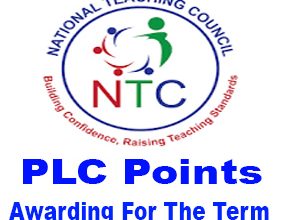
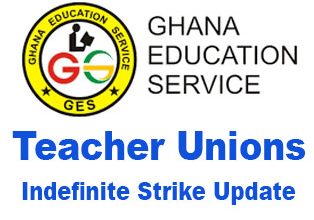
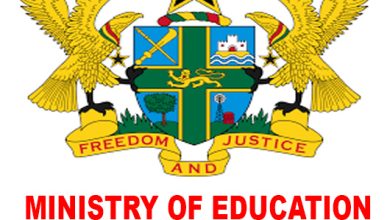
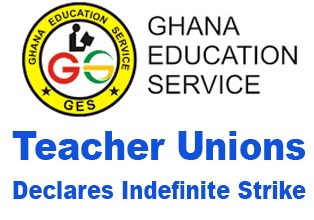
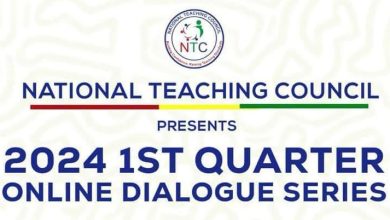
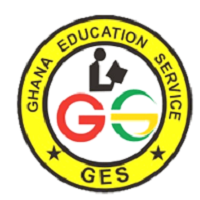
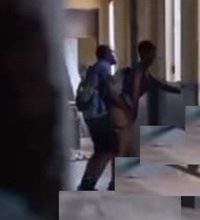
One Comment